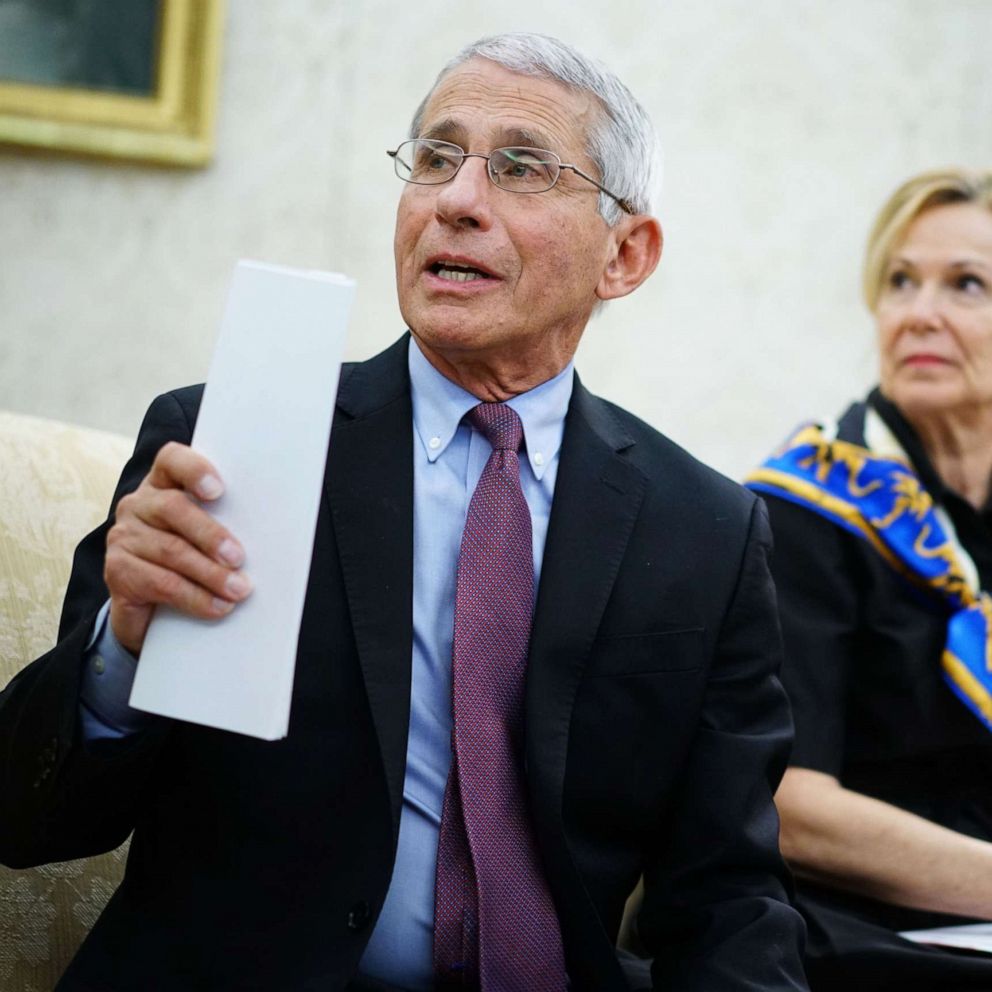Oklahoma City University's virtual graduation ceremony 'Zoom bombed' with racist attack
About 650 graduates were participating in the Zoom commencement.
A virtual commencement ceremony at Oklahoma City University was disrupted by a message of hate from racist hackers who hijacked the online exercises meant to give graduates some semblance of the pomp and circumstance they missed out on due to the novel coronavirus pandemic, officials said.
As the graduation was concluding on Saturday, racial slurs and a swastika appeared on the Zoom broadcast as African American graduate Jay Williams was delivering a prayer, saying, "Where there is hate, may we be agents of love."
Oklahoma City University President Martha Burger immediately condemned the apparent attempt to sully the milestone moment for about 650 graduates participating in the ceremony and their loved ones watching.
"We are heartbroken and outraged at the hate-filled attack that occurred at the end of our virtual graduation celebration," Burger said in a statement released on social media. "During a time that should have been focused on recognizing our graduating students, an unknown source was able to bypass the system and display racist and offensive language. I want to be clear, OCU stands against racism, bigotry, and anti-Semitism."
University police and the FBI have launched a joint investigation to identify the person or persons responsible and bring them to justice, Rod Jones, a school spokesman, told ABC News on Sunday.

"We are deeply hurt and saddened by the pain that has been inflicted upon our community," Burger said. "The class of 2020 has been champions of diversity and inclusion, and we will continue to show love and support to each other as a university family in the aftermath of this hate."
As the coronavirus began to sweep the nation in March, university officials canceled all in-person classes and switched to online instruction while nixing athletic and extracurricular events. In an attempt to blunt the spread of the virus, Oklahoma Gov. Kevin Stitt imposed strict stay-at-home orders on April 1, including restricting all gatherings to 10 or fewer people.
Jones confirmed to ABC News that the graduation was broadcast on the Zoom videoconferencing platform.
"We have been deeply upset to hear about these types of incidents. Zoom strongly condemns such behavior and recently updated several features to help our users more easily protect their meetings," a Zoom spokesperson said in a statement issued in response to Saturday's incident.
"We are committed to maintaining an equal, respectful and inclusive online environment for all our users regardless of race, color, religion, sex, national origin, sexual orientation and gender identity, age, disability or genetics," the statement continued. "We encourage users to report any incidents of this kind either to Zoom so we can take appropriate action or directly to law enforcement authorities."
Zoom has been plagued throughout the pandemic by hackers circumventing the platform's security protocols and interrupting business meetings and remote classroom learning by inserting pornography or messages of hate in live broadcasts.
In early April, the FBI issued a warning about "Zoom-bombings" and cautioned users to bolster cybersecurity to avoid such attacks. The FBI warning prompted the New York City Department of Education to ban teachers from using Zoom to provide instruction to the city's 1.1 million public school students.
The popularity of Zoom has skyrocketed with the platform’s daily user base growing, according to company statistics, from 10 million a day to 200 million as the virus prompted governors in nearly every state to impose stay-at-home orders for all nonessential workers.
ABC News reported on April 28 that the Department of Homeland Security’s Cyber Mission and Counterintelligence Mission centers distributed a report to law enforcement and government agencies around the country cautioning that Zoom users were vulnerable to intrusions by foreign government spy services, including China.
Hackers “likely will identify new or use existing vulnerabilities in Zoom to compromise user devices and accounts for further exploitation of corporate networks,” according to the report.
Zoom founder and CEO Eric Yuan told ABC News in April that the company was working to bolster security and educate users on how to guard against infiltrators.
“You need to understand the secure features about how to use Zoom," Yuan said.
He recommended that users create a password for each Zoom meeting and offer a "waiting room" to welcome and vet participants, and keep out intruders.
"We take data privacy very very seriously," Yuan said. "We have a privacy policy and our intention is never sell any customer data."
This story has been updated to include a statement from a Zoom spokesperson.







